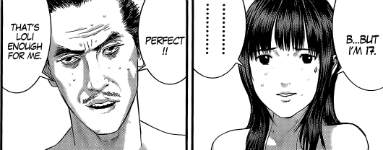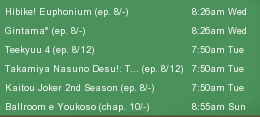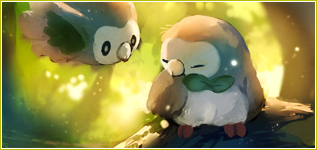hentai_proxy said:
The question still stands.
Maturity would be having consequences for actions, for one thing. Often times this does involve content level, or mature themes. Like TitanXL mentions, Digimon deals with killing in a mature manner; there's consequences for actions there.
One huge flaw with Avatar, for example, was it was about war but shied away from stuff you'd actually see in war. Soldiers dying, war crimes, all that stuff. And don't feed me the 'they imprisoned people'. American shows always arrest/imprison people because that's all they can do. The one person who did apparently die in Avatar was never confirmed to be dead until years later at a convention because they can't actually say 'Ow, I'm dead' and show his last moments. No funeral or breakdown like with certain characters in Fullmetal Alchemist. It's just quickly swept aside and they move on.
America kid's shows in general never really do the things kid shows do. In action shows characters rarely get hurt. Fire doesn't burn people to cinders, they can rush into battle without worrying of dying because it's a kids show so obviously nothing. Swords can never be used to cut or stab anyone, so having swords or knives in your show is pointless. Most of the time guns have to be laser blasters, which is laughable and breaks immersion unless it's Star Wars or something.
America is just not prepared to animate mature stories as long as it's viewed as only for kids, and there's such a huge censorship problem on what is appropriate kids show material. Dealing with mature topics as well, like divorce or survivor guilt or similar backstories you find in Digimon. Up was mentioned.. remember how they never explained what happened between the kids parents? They just tip toe around the issue and say 'Oh, my dad's not here.. he's never here'. And that's that. Saying anything direct like 'he left us' or 'he's cheating on my mom' or whatever he was actually doing is way too much for them to even say in a 'kids film'. Or maybe whatever happened to Ellie and her baby would be a better example
I read an interview one time about a famous Japanese director who points out the problem with sheltering kids.
Q: Were your first drawings as a child influenced by the aftermath of Hiroshima? We remember that one of Dr. Hell’s officers (Mazinger’s nemesis) was an ex-Nazi.
A: I have been asked the same question about Dr. Hell several times here in the Middle East, but I’d like to point out that Dr. Hell is not supposed to be German. I would never associate the “bad guy” with a particular nation, because it would be unfair to the people of that country. We have already seen many Hollywood movies where the bad guys were sometimes Russians, sometimes Arabs, and I don’t really think this has helped in spreading understanding between cultures.
Having said this, the war experience surely affected my whole childhood and the formation of my personality. Even if I have not experienced any bombing or fighting, all the adults around me kept telling me horrible stories about the war, so I grew up with [the awareness] that my works should deliver a message of peace.
I was particularly saddened when I found out that in many countries I was considered to be an author who loves to depict battles and destruction just for the fun of it. The reason why I depict the effects of war in my manga is because I strongly believe that a person should learn from childhood how war can be destructive and how much people and societies may suffer from it, just the same way I learned it from the stories of adults around me when I was a little child. If we raise a child telling him only the nice and happy things of life, he will be unable to cope with all the hardships he will inevitably meet in his adulthood; if he doesn’t know the devastating effects of violence and repression, he could cause incredible damage and suffering to the people around him.
I guess this is one of the reasons why Japanese people, who have been raised for the last 60 years reading manga that some people abroad have labeled as hyper-violent, chose not to be involved in war after 1945 and have stated in their very constitution that they renounce war, as opposed to a country like the US, which has strong censorship against violence in animation and programs for children, but has been at war for most of its recent history. |







